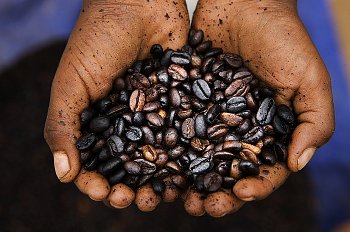
There are many versions of coffee that Latinos know. From the Caribbean café con leche, where coffee is mixed in with milk and sugar for a warm, creamy treat to the Mexican café de olla that includes seeping cinnamon for a full flavor of sweet and spicy, the idea of drinking coffee during breakfast and after big meals is part of the culture and digestion.
In fact, many times it is instilled from a young age when parents and grandparents sit around and enjoy a steaming pot after dinner with some kind of postre or dessert.
Now, there are numbers to back up this cultural pastime, although it just may be a way of life for many. According to the National Coffee Association’s National Coffee Drinking Trends 2013, Latinos are leading the way in coffee consumption although coffee consumption has decreased across the board.
Based on the study, of the Latinos questioned, about 76 percent of them had had coffee the day before, up 13 percent from the previous year. This was compared to 46 percent of Blacks and 64 percent of Caucasians.
In general, it seems as though the amount of people drinking traditional coffee has declined. Those between the ages of 18-39 have decreased their consumption of coffee while those over the age of 60 have increased their intake by six percent.
Over the years, there have been many studies regarding coffee. From helping the digestive tract to helping reduce risk of diabetes and certain cancers, coffee has been making the headlines for some time now. Although, doctors do warn against an over consumption of coffee, which could cause acid reflux, increased heart burn and may actually affect the lining of the intestine.
Additionally, there has been an increase in single cup brews, up from previous years. It seems like the giant 15-cup coffee pots will soon be out of existence.
However, the question moving forward is whether or not that will change for Latinos. Typically, a self-sustaining culture and community, Latinos don’t always go with the mainstream movements.
